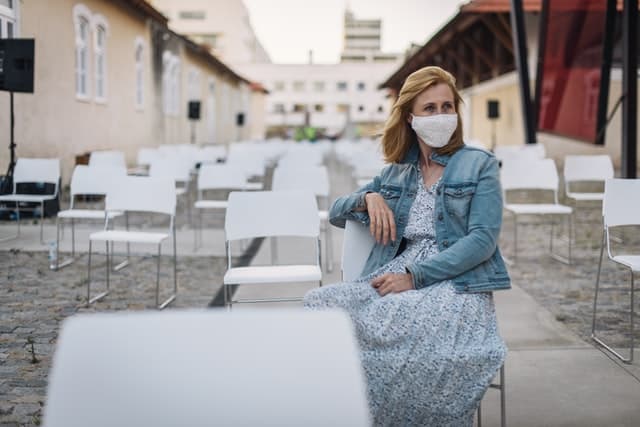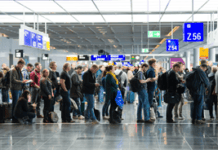Prevue turned to the experts to lay out a 10-point plan for safe meetings, events and travel in the COVID-19 era.
Here are 10 pillars for safe meetings in the COVID-19 Era. Look for the complete white paper on this topic at the end of October.
Pillar 1: CDC Guidelines
Despite some confusing messaging, the CDC remains the final word on practices for safe meetings. Among the CDC’s latest changes have been to advise travelers to check state, local and territorial governments for requirements regarding quarantine rather than requiring a 14-day quarantine for all those returning from international destinations or areas with a high concentration of cases. Click here for more information.In addition, the CDC updated guidance to its How COVID-19 Spreads web site, which includes information about the potential for airborne spread of the virus that causes COVID-19.
Pillar 2: COVID Alerts/Online Tools
The web has many helpful tools that can help planners assess their meeting’s risk based on the destination, and alert them to changes at the state and local level. Among them:
Pillar 3: Meetings Industry Accepted Practices
The Events Industry Council (EIC), a global federation of more than 30 member organizations, released the Meeting and Event Design Accepted Practices Guide to serve as a resource and educational tool for industry professionals to utilize to put curated resources and materials into practice.
Pillar 4: Sanitization Protocols
The Global Biorisk Advisory Council (GBAC), a division of the International Sanitary Supply Association (ISSA), gives GBAC STAR accreditation to those hotels, convention centers and other facilities that have outbreak prevention, response and recovery in place. GBAC STAR is the gold standard of facilities. The Georgia World Congress Center in Atlanta became the first convention center in the country to complete the GBAC Star program.
Pillar 5: Safe F&B Practices
Buffets, as we know them, are a thing of the past. For safe meetings, expect one-sided offerings where staff will serve your attendees; self-serve may never return. More common are boxed lunches and dinners with colleagues carefully seated 6 feet apart from each other and the use of plate covers to protect food from airborne pathogens. Passed hors d’oeuvres at cocktail receptions are another thing of the past for now, as are glasses of wine left out on trays for guests to help themselves (instead, hotels are using wine glass covers).
Even coffee breaks also look much different than we remember them. The days of attendees helping themselves to coffee and tea have been replaced by staff making each person’s favorite hot beverage at a barista bar.
Pillar 6: Face Masks in the Air
The 7 airlines that are part of the trade group Airlines for America (A4A)—Alaska Airlines, American Airlines, Delta Air Lines, Hawaiian Airlines, JetBlue Airways, Southwest Airlines and United Airlines—are increasing the enforcement of its mandatory face mask policies, and those passengers who do not abide may have their flying privileges revoked.
In addition to enforcement of face covering policies, passengers may see several other changes and updates to the travel experience, including intensive cleaning protocols, (in some cases to include electrostatic cleaning and fogging procedures) to sanitizing cockpits, cabins and key touchpoints. Carriers have also implemented a range of policies, including back-to-front boarding, to help allow for distancing between people.
Pillar 7: Temperature Checks, Social Distancing & Face Masks at Meetings
There are multiple gateways for social distancing, from transportation to the meeting to traffic flow and room capacity at the meeting. It’s instructive to look at how other live meetings happening right now are putting safety protocols in place.
As one example, in late August, ALHI held the Back to Business Experiential Forum at the Omni Dallas. As a showcase for doing all the right things, the meeting paid painstaking attention to detail. A copy of the Event Industry Council’s Meetings and Events Code of Conduct was included in the conference materials and ALHI even held a conference call with attendees before the event to discuss safety protocols. Attendees retained the same seats throughout the event, including when they ate their pre-packaged lunches, and were assigned to groups for entering and exiting to avoid overcrowding.
Pillar 8: Pre- and Post-Event Testing/Reporting
There’s a lot to learn about COVID-19 testing protocols from existing meetings, such as the Republican National Convention in Charlotte, NC. In the end, a post-event survey of 252 delegates found no known positive tests. Mecklenburg County health officials reported that four people at the RNC —two attendees and two local support staff — were diagnosed with COVID-19 before their arrival at the convention and 14 of their contacts were advised to quarantine.
Pillar 9: Testing Before Air Travel
The International Air Transport Association (IATA) has called for universal, systematic testing for all travelers before departure. PCR Testing at the border is being tested internationally, in locations such as Germany, France, Iceland and Austria, Tokyo and Dubai. A new digital health “passport” program on flights between London and New York and between Hong Kong and Singapore, enable travelers to provide certified COVID-19 test information to border officials upon arrival. The digital health pass, called CommonPass, was developed by Swiss-based nonprofit the Commons Project and the World Economic Forum; it is being presented to governments around the world.
Pillar 10: Hybrid Options
As travel opens up and live meetings resume, there will still be a portion of the population who can not travel for a multitude of reasons, from having pre-existing health conditions to caring for parents who are in a high-risk age range. Meeting planners will need to make their events accessible to these constituents for the foreseeable future by offering a hybrid option.
You Might Also Be Interested In











